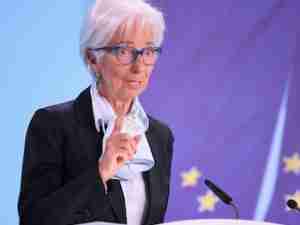"There is no time to waste fighting politics as usual," Daley said in a speech at the U.S. Chamber of Commerce to the U.S.-Korea Business Council. "If we do not act before the August recess, American business will suffer."
Obama faces a showdown with Republicans over his insistence that an extension of the nearly 50-year-old Trade Adjustment Assistance (TAA) retraining program be passed along with the Korea pact and two other pending free trade agreements with Colombia and Panama.
Republicans have objected to Obama's plan to insert the TAA program into the implementing bill for the South Korea agreement, insisting that lawmakers be allowed to vote separately on the TAA and the trade pact.
The White House believes both could pass separately.
However, Daley said Republicans have yet to offer a "credible" plan that would prevent TAA opponents from blocking a vote on the program, which Democrats see as a vital safety net and many Republicans view as ineffective.
"We can no longer wait. If there's no agreement on an alternative approach in the very near future, we will move forward to seek passage of the FTA (Free Trade Agreement) with TAA" included, Daley told the audience of U.S. and Korean business officials.
Daley said the White House expects the Korea agreement "to create or support 70,000 American jobs" through tariff cuts that will open the South Korean market to more U.S. exports.
Congress must act soon because a rival deal struck by the European Union with South Korea went into force on July 1, threatening U.S. market share in the longtime ally, he said.
Senate Republican Leader Mitch McConnell has said he would vote against the Korean agreement if TAA is included in the implementing legislation for the deal.
American Jobs on the Line
But most business leaders recognize an extension of TAA has to be part of the mix, and don't believe it is worth holding the agreement up over the issue.
"We can't let differences over processes and procedures hold back these agreements any longer. American jobs and American standing in the world are on the line," said U.S. Chamber of Commerce President Thomas Donohue.
The deal was originally negotiated during the administration of former President George W. Bush and business groups have been waiting four years for it to become law.
"We've seen first hand what these free trade agreements do after implementation," said Mike Ducker, chief operating officer of FedEx Express, a division of FedEx.
"Not only does it create new commercial opportunities for our customers and greater demand for our services, it allows us to continue growing our operations and our work force around the world," Ducker told Reuters in an interview.
Critics, including the AFL-CIO labor federation and Public Citizen's Global Trade Watch, say trade deals endanger U.S. jobs by cutting U.S. tariffs and encouraging companies to move their operations overseas.
A study by the left-leaning Economic Policy Institute says the Korean trade agreement could displace about 159,000 American jobs over seven years.
But Harrison Cook, vice president of international government affairs for Eli Lilly and Company, said the rival EU-South Korea agreement puts U.S. pharmaceutical companies at a disadvantage in a major market.
"All those tariff preferences are going to go to our Europeans competitors, not to us. That's a significant consideration in this sector, where you do long-term contracting," Cook told Reuters in an interview. (Reuters)




